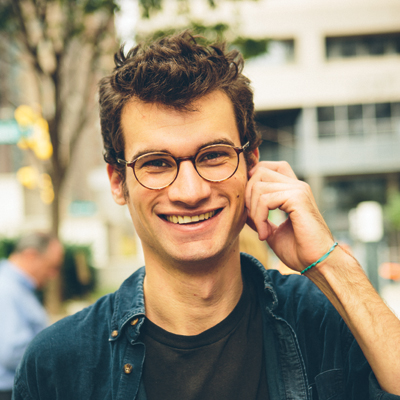The Millennial Revolution: We Have the Potential to Change Politics
Fueled by pathetic voter turnout and anecdotally observed apathy, the narrative about young people in Philadelphia—so-called “new Philadelphians,” especially—is that they don’t care about local politics.
“The city is attracting many young, highly educated transplants that read the New York Times instead of the Inquirer and don’t know who their City Councilperson or Congressional representative is,” says 31-year-old City Paper reporter Dan Denvir, a highly educated transplant himself. But it wasn’t so long ago that Philadelphia was positively giddy about a new generation of politically engaged 20-somethings.
In 2001, Philadelphia Weekly ran a cover story about an enterprising 22-year-old named Andrew Hohns: “The Boy Who Would Be Mayor.” Hohns ran twice for state rep against Babette Josephs, losing by a few hundred votes in 2004. Two years later, 25-year-old Tony Payton Jr. won a seat in the General Assembly over a party-backed candidate. In 2007, the City Paper published a series of stories on the city’s new political reformers, one subtitled “Who Are These Strange Beings Who Want to Save City Hall?” Behind many of those faces was the city’s yuppie political lobby, Young Involved Philadelphia (YIP), which Hohns co-founded, and the Center for Progressive Leadership (CPL), the political incubator from which Payton emerged. YoungPhillyPolitics.com served as the official forum of the movement.
Today, much of that infastructure has crumbled. YIP has shifted its focus from politics to civic engagement (or “happy hours,” as erstwhile YIPster Greg Heller, 32, puts it). CPL is no longer in Pennsylvania, and YoungPhillyPolitics.com has been dormant since last February. The roster of idealistic, reform-minded millennial political candidates stands at roughly zero. What happened?
Millennials bristle at heuristics about their tendency toward easy gratification and entitlement—the result of a trophies-for-everyone upbringing that discourages unglamorous political work. But while there are holes in that argument—one can certainly find young, bright Philadelphians working in politics—there is some truth to it.
Many millennials just can’t stomach the depressing compromises and horse-trading necessary to actually impact politics. “There’s a mysticism about ward politics,” as 31-year-old Pennsylvania Young Democrats president Danny Bauder puts it. And it has all but ensured that “new Philadelphians” stay mostly powerless.
But there may be a better explanation, one that has less to do with barriers keeping millennials from the halls of power than with the barriers that have already been broken down. Many of the young progressives and good-government types who emerged in the mid-2000s were galvanized by the Bush administration’s conservatism and cronyism. From Philly for Dean and MoveOn.org came the coalition that helped elect District Attorney Seth Williams and Mayor Michael Nutter.
Nutter struck a clean break from the corruption of the Street administration; his administration has focused on education reform, public health, business-friendliness and, of course, bike lanes. While not everyone has stayed enamored with him, the reformers had realized much of their agenda by the end of the decade.
As the candidates of upwardly mobile reformers were getting elected, the neighborhoods of upwardly mobile reformers were transforming, too. Center City was blossoming into a walkable, bike-able yuppie paradise, while gentrifiers in Fishtown spruced up their backyards and called themselves pioneers. “People are pushing more in the civic space,” says Payton, now a lobbyist in Harrisburg, “because there has been a change in the political space.”
In other words, now that many of the big political victories have been won, millennials are increasingly involved with hyper-local activism that operates more or less out of view of Dilworth Plaza. Point Breeze’s Newbold Neighbors Association organizes trash pickup days and annual neighborhood “beer tours.” The South of South Street Neighborhood Association and the East Passyunk Business Improvement District have similar missions. Your average 20- or 30-something is more likely to volunteer for the Bicycle Coalition of Greater Philadelphia or the Schuylkill River Development Corporation than for a local political candidate.
Perhaps the best example of this brand of engagement involves a select group of primary schools. As the edifice of traditional public education dissolves in Philadelphia, youngish, relatively well-off parents in Grad Hospital have raised $400,000 to ensure that Chester A. Arthur School has a nice playground and other amenities when their kids enroll in 2017. The Center City District runs a similar initiative for all its elementary schools. But as a Temple education professor recently pointed out in the Atlantic, the initiative’s success means that kids from poor neighborhoods are being locked out of those same schools, which only have so many seats available.
This speaks to a larger, uncomfortable truth about Philadelphia’s recent resurgence. According to the Center City District, in 2000, average household income in Greater Center City was $2,000 less than in the rest of the city. By 2011, it was nearly $15,000 more. In the past decade, millennials have made Philadelphia a really awesome place for some millennials to live.
The city has become a highly desirable playground for affluent 20- and 30-somethings. But millennials won’t be 20- and 30-something forever, and the problems facing the city’s less desirable neighborhoods will become their problems, too. A lack of serious political engagement with the city’s biggest woes—gun violence, unemployment, rising property taxes and, of course, public schools—isn’t going to do this generation any favors when it has to decide whether to stay put or flee.
>>Click here for more thoughts on the millennial revolution



